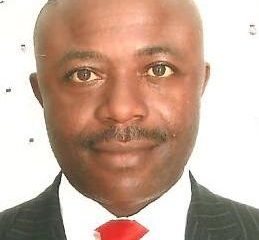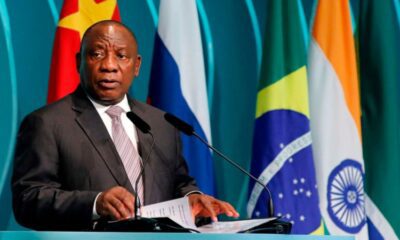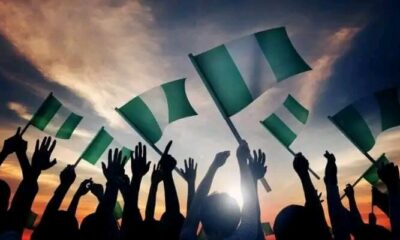National Issues
Northern Nigeria and the Quest for Federalism -By Ugochukwu Amasike


Once upon a time, before the era of coups and counter-coups in pre-oil Nigeria, there were four financially independent regions, namely: Northern Region, Western Region, Mid-Western Region, and Eastern Region. They all maximised their unique comparative advantages for the development of their respective societies and for the overall development of the national economy. It was a situation of “live and let live”, with all four Regions developing at their pace.
The Northern Region of Nigeria, occupying 70 percent of Nigeria’s land mass, with its huge solid mineral deposits, growing mining industry, rich arable lands and a blossoming agro-industrial economy, was Nigeria’s most thriving region. It was in fact Nigeria’s wealthiest region by GDP and the region with the brightest prospects for further accelerated economic growth.
The Northern Region was also blessed with good leaders such as: Sir Ahmadu Bello, Sir Abubakar Tafawa Balewa, Joseph S. Tarka, Mallam Aminu Kano, amongst others. These leaders were men who were driven and motivated by love and compassion for their people. They understood the people’s needs and worked tirelessly to develop programmes and policies specifically tailored to meet and cater to those needs.
However, today, the once thriving Northern Region is now the poster child of under-development, illiteracy, poverty, and sectarian crises; with inter-ethnic and ethno-religous riots now assuming the status of a bi-annual cultural event in most of the 19 states that constituted the old Northern Region. The North of Nigeria is a region that more than most other sections of Nigeria bears the shameful scars of poverty and underdevelopment.
So What Changed?
Military rule did! That’s what changed. After the invasion of the political arena by Nigeria’s erstwhile military adventurers and in the aftermath of the Nigerian civil war, a new extractive and exclusive political order was created (one that exists till today), and this new order gave birth to a rent-seeking economy, solely dependent on the oil in the Niger-Delta – a resource which was considered by Nigeria’s new leaders nay rulers as “the spoils of war”.
The entrance of these new operators witnessed the abandoning of Nigeria’s hitherto traditional agriculture-based economy, and this was the beginning of the destruction of the Northern region’s predominantly agro-industrial economy. The consequences of that arrest 50 years ago continues to haunt Northern Nigeria and the larger Nigeria till date.
According to the current Vice President, Professor Yemi Osibanjo, whilst speaking at the Northern Re-awakening Summit in 2015, stated that the 19 states of the Northern Nigeria have the highest levels of poverty in Nigeria, with the region also having the highest infant mortality rates in the country, the highest number of unemployed people and the lowest rate of child enrolment in schools, and with Lagos state producing more West African Examination Council (WAEC) candidates than the entire North-East and North-West geo-political zones combined.
How Can the Situation Be Remedied?
To remedy the situation Nigeria’s political system needs to be liberalised, to empower the states in the North to properly expand and harness their agro-industrial economy and march to economic development through the harnessing and development of their comparative advantages for the well-being of their people and the betterment of the Nigerian economy.
It is generally known that the political systems in any society determine its economic institutions and by necessary implication the prosperity or lack thereof of the members of society. North Korea is a vivid and extreme contemporary example of faulty politics and the resultant dysfunctional economy it brings and the infliction of poverty on human beings.
Nigeria and the region formerly known as Northern Nigeria is in particular danger of becoming another negative example of gross underdevelopment, if urgent and necessary steps are not taken to re-work our politics and national economic framework. For Nigeria to get its economy right, it must get its politics right, just as Former Vice President Atiku Abubakar recently stated:
“the truth is that Nigeria as presently constituted is unsustainable…our current structure and the practices they have encouraged have been a major impediment to the economic and political development of the Country…and at the risk of reproach, it has not served my part of the country, the North, well.”
The truth is that Nigeria’s current political and economic structure has not served any part of the country well. It has only served the treacherous vested interests of a predatory band of men and women, who consider Nigeria and it’s resources as their patrimony, and are thus passionately opposed to the idea of federalism, a system which would dislodge their fangs from our resources.
It is pertinent to note that the legacy of federalism in Nigeria was economic development, and shared prosperity, with Nigeria being touted as Africa’s potential first super-power, yet the enduring legacy of a unitary system of government has been poverty, mis-governance, corruption, sectarian crises, bitter and violent inter-ethnic and inter-religous contests for the control of the government at the centre – the controller and dispenser of goodies, under the stifling unitary system Nigeria currently practices.
The “good leadership” Nigeria experienced in its early post Independence years occurred BECAUSE of the healthy political systems and institutions that existed and NOT in spite of it, and whilst appreciative of the need for patriotic leadership, it is submitted that Nigerians can not continue to un-healthily depend solely on the good will and good intentions of a fallible man or woman if we are sincerely desirous of growth and development.
To move Nigeria forward economically and otherwise, we must re-adopt and practice a political-economic system that re-awakens Nigeria’s sleeping economic giant – Northern Nigeria, and that system is federalism. Nigeria can not expect to experience sustainable economic growth and development, whilst practising a system that stifles and inhibits; one that incentivises and rewards indolence and laziness; and a system that scorns hard work and enterprise and incapacitates a large and very crucial section of the country.
If Nigeria is to grow and blossom, then the North must develop. The Northern frontiers of our dear country, which occupies over 70 percent of our territory, is too significant and crucial a region to be allowed to continue to wallow and languish on the lowest rungs of Human Development Indices. If Northern Nigeria succeeds, Nigeria succeeds, and only the practice of federalism will enable and permit the resurgence and success of Northern Nigeria.
May God bless and keep the Federal Republic of Nigeria.
Ugochukwu Amasike, Lawyer, Lagos, Nigeria. Email: ugoamasike@yahoo.com

















